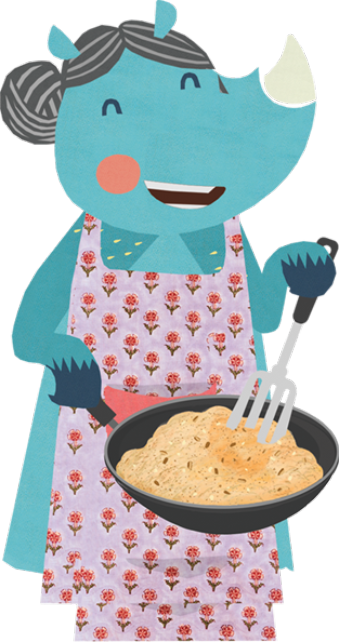We have seen the four signs of a baby’s readiness to start solids. Today, we see how to avoid misunderstanding these signs and starting your baby prematurely on solids. Starting solids before your baby is ready could negatively affect their health.
The 4 Signs of Readiness
As discussed earlier, there are some developmental signs of readiness that your baby will display, which indicates they are ready to receive solid food. They have good head and neck control, they can sit upright independently, they are grabbing things, and they show an interest and curiosity towards food.

When to Introduce Solid Foods to Babies?
The World Health Organization recommends introducing solid foods when a baby is displaying all signs of readiness or at 6 months of age.
Introducing solid foods too early can have negative impacts on a baby's health for several reasons.
1) Before 6 months, a baby's gut is still developing, and breast milk or formula is the only source of nutrition that their body can efficiently absorb. Early introduction of solid foods can displace essential nutrients from breast milk, leading to stunted growth and development..

2) Solid foods play a supplementary role, which means breast milk and formula are the primary and most important source of a toddler’s nutrition (till they’re 1). The gradual introduction of solid food alongside breast/formula feed is meant to encourage a baby’s social and motor skills and help them build a positive relationship with various kinds of food. Solid food is not meant as a replacement for breast/formula milk in babies under 1 year.
3) Research shows that introducing solid foods too early (e.g., at 4 months) can increase the risk of several health issues such as gastroenteritis, poor gut health, obesity, diabetes, eczema, and Celiac disease. It's vital to keep these factors in mind while considering starting solids for your baby.
Common Misconceptions: You Are Not Alone!
Here are some common misconceptions that many mums have about starting their baby on solid foods:
Q: “My baby is waking up frequently at night. Does this mean he’s hungry?”
A: Many parents assume that if their baby is waking up frequently at night, they must be hungry and need solid foods to fill them up. However, babies can wake up for several reasons, such as feeling too hot or cold, sleep regression, or dependency on feeds.
 Did You Know
Did You Know
Q: “My baby is not gaining enough weight. So should I start them on solids?”

Reason 1: Not consuming complete breast milk
It's natural to feel worried if your baby isn't gaining weight as quickly as you'd like. Sometimes, you may think that breast milk or formula is not enough. But, it's important to understand that around the 4–5-month mark, breast milk and formula are the main drivers of weight gain.
Babies can be distracted at this age, which means they may not be consuming the entire milk contents from one breast. Fat-rich milk is contained in the latter half of breastfeed, and if the baby stops feeding halfway or does not drink all the milk, they end up missing out on key nutrition. This is a common occurrence, and should not be considered a reason to start them on solids now.
Reason 2: Cluster feeding
 Your little one may simply be going through a growth spurt or may be in a cluster feeding phase. But this phase will pass once their growth spurt is over. It does not mean you start them on solids. Stick to breast/formula milk for their nourishment!
Your little one may simply be going through a growth spurt or may be in a cluster feeding phase. But this phase will pass once their growth spurt is over. It does not mean you start them on solids. Stick to breast/formula milk for their nourishment!
 Did You Know
Did You Know
Starting solid foods is a significant milestone, but it's best to wait until your baby is developmentally ready. Look for signs of readiness, and don't start solids because of the above misconceptions!
Next week, we will explore concerns like gagging, choking, and tips to ensure a positive weaning experience for both parents and babies.
 We Suggest
We Suggest




















